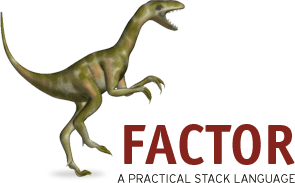Related Research Articles
A document type definition (DTD) is a set of markup declarations that define a document type for an SGML-family markup language.

Extensible Markup Language (XML) is a markup language and file format for storing, transmitting, and reconstructing arbitrary data. It defines a set of rules for encoding documents in a format that is both human-readable and machine-readable. The World Wide Web Consortium's XML 1.0 Specification of 1998 and several other related specifications—all of them free open standards—define XML.
GNU Bison, commonly known as Bison, is a parser generator that is part of the GNU Project. Bison reads a specification in the BNF notation, warns about any parsing ambiguities, and generates a parser that reads sequences of tokens and decides whether the sequence conforms to the syntax specified by the grammar.
Abstract Syntax Notation One (ASN.1) is a standard interface description language for defining data structures that can be serialized and deserialized in a cross-platform way. It is broadly used in telecommunications and computer networking, and especially in cryptography.
XSD, a recommendation of the World Wide Web Consortium (W3C), specifies how to formally describe the elements in an Extensible Markup Language (XML) document. It can be used by programmers to verify each piece of item content in a document, to assure it adheres to the description of the element it is placed in.
In computing, RELAX NG is a schema language for XML—a RELAX NG schema specifies a pattern for the structure and content of an XML document. A RELAX NG schema is itself an XML document but RELAX NG also offers a popular compact, non-XML syntax. Compared to other XML schema languages RELAX NG is considered relatively simple.
Jakarta XML Binding is a software framework that allows Jakarta EE developers to map Java classes to XML representations. JAXB provides two main features: the ability to marshal Java objects into XML and the inverse, i.e. to unmarshal XML back into Java objects. In other words, JAXB allows storing and retrieving data in memory in any XML format, without the need to implement a specific set of XML loading and saving routines for the program's class structure. It is similar to xsd.exe and XmlSerializer in the .NET Framework.
XML data binding refers to a means of representing information in an XML document as a business object in computer memory. This allows applications to access the data in the XML from the object rather than using the DOM or SAX to retrieve the data from a direct representation of the XML itself.
An XML schema is a description of a type of XML document, typically expressed in terms of constraints on the structure and content of documents of that type, above and beyond the basic syntactical constraints imposed by XML itself. These constraints are generally expressed using some combination of grammatical rules governing the order of elements, Boolean predicates that the content must satisfy, data types governing the content of elements and attributes, and more specialized rules such as uniqueness and referential integrity constraints.

Factor is a stack-oriented programming language created by Slava Pestov. Factor is dynamically typed and has automatic memory management, as well as powerful metaprogramming features. The language has a single implementation featuring a self-hosted optimizing compiler and an interactive development environment. The Factor distribution includes a large standard library.
XMLBeans is a Java-to-XML binding framework which is part of the Apache Software Foundation XML project.
Code Synthesis Tools CC is a software development company located in Cape Town, South Africa. The company revolves around the development and licensing of ODB, a compiler-based object-relational mapping (ORM) system for C++, CodeSynthesis XSD, an open-source, cross-platform XML Data Binding compiler for C++, and CodeSynthesis XSD/e, an open-source, validating XML parser/serializer generator and C++ XML Data Binding for mobile and embedded systems.
OpenESB is a Java-based open-source enterprise service bus. It can be used as a platform for both enterprise application integration and service-oriented architecture. OpenESB allows developers to integrate legacy systems, external and internal partners and new development in business processes. It supports a multitude of integration technologies including standard JBI, XML with support for XML Schemas, WSDL, and BPEL with the aim of simplicity, efficiency, long-term durability, and low TCO.
CodeSynthesis XSD/e is a validating XML parser/serializer and C++ XML Data Binding generator for Mobile and Embedded systems. It is developed by Code Synthesis and dual-licensed under the GNU GPL and a proprietary license.
xmlbeansxx is a software framework for C++ to XML binding. It is open-source software licensed under Apache License 2.0.
The Java Development Kit (JDK) is a distribution of Java Technology by Oracle Corporation. It implements the Java Language Specification (JLS) and the Java Virtual Machine Specification (JVMS) and provides the Standard Edition (SE) of the Java Application Programming Interface (API). It is derivative of the community driven OpenJDK which Oracle steward. It provides software for working with Java applications. Examples of included software are the virtual machine, a compiler, performance monitoring tools, a debugger, and other utilities that Oracle considers useful for a Java programmer.
Virtual Token Descriptor for eXtensible Markup Language (VTD-XML) refers to a collection of cross-platform XML processing technologies centered on a non-extractive XML, "document-centric" parsing technique called Virtual Token Descriptor (VTD). Depending on the perspective, VTD-XML can be viewed as one of the following:

An XML transformation language is a programming language designed specifically to transform an input XML document into an output document which satisfies some specific goal.
gSOAP is a C and C++ software development toolkit for SOAP/XML web services and generic XML data bindings. Given a set of C/C++ type declarations, the compiler-based gSOAP tools generate serialization routines in source code for efficient XML serialization of the specified C and C++ data structures. Serialization takes zero-copy overhead.
The PROV standard defines a data model, serializations, and definitions to support the interchange of provenance information on the Web. Here provenance includes all "information about entities, activities, and people involved in producing a piece of data or thing, which can be used to form assessments about its quality, reliability or trustworthiness".